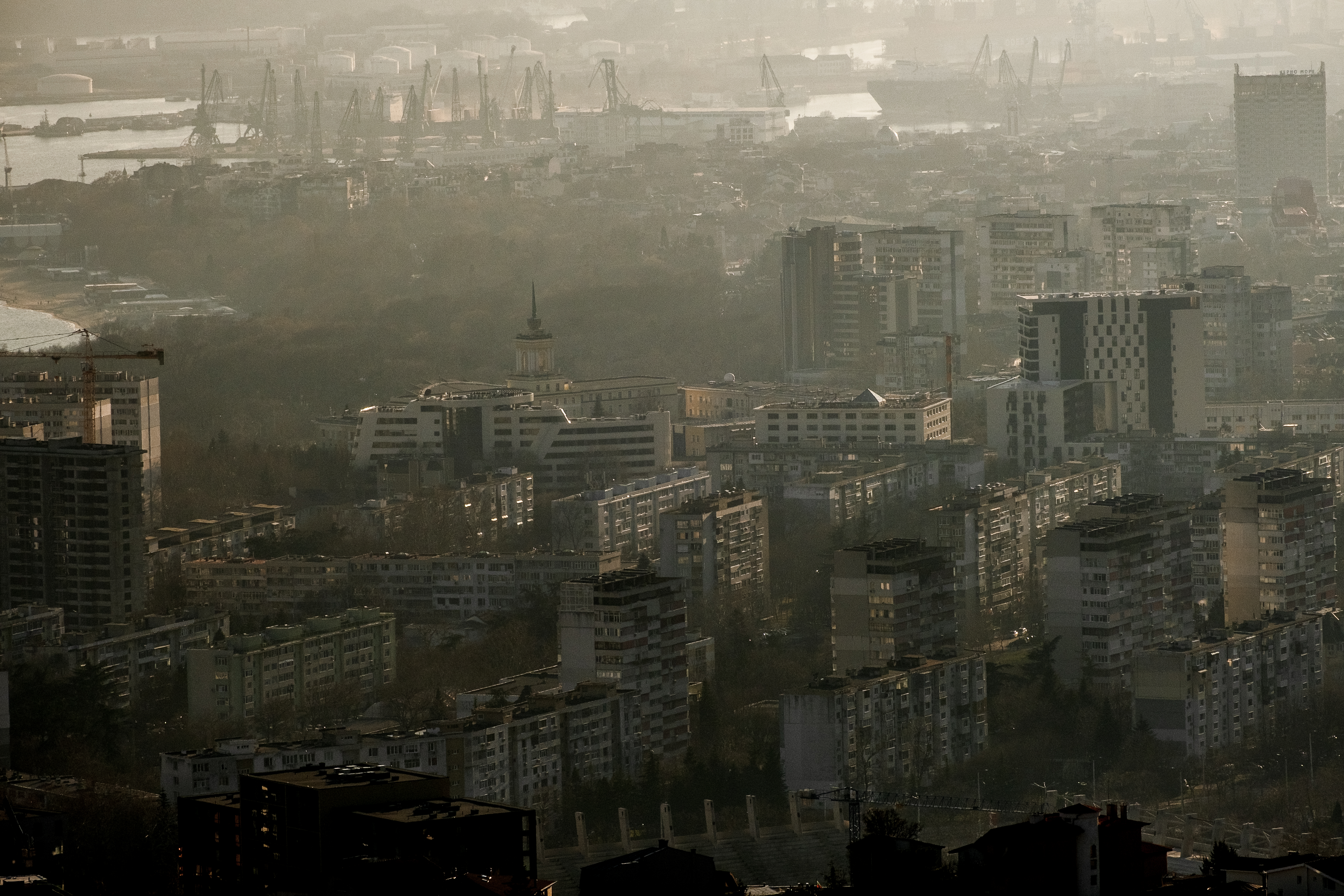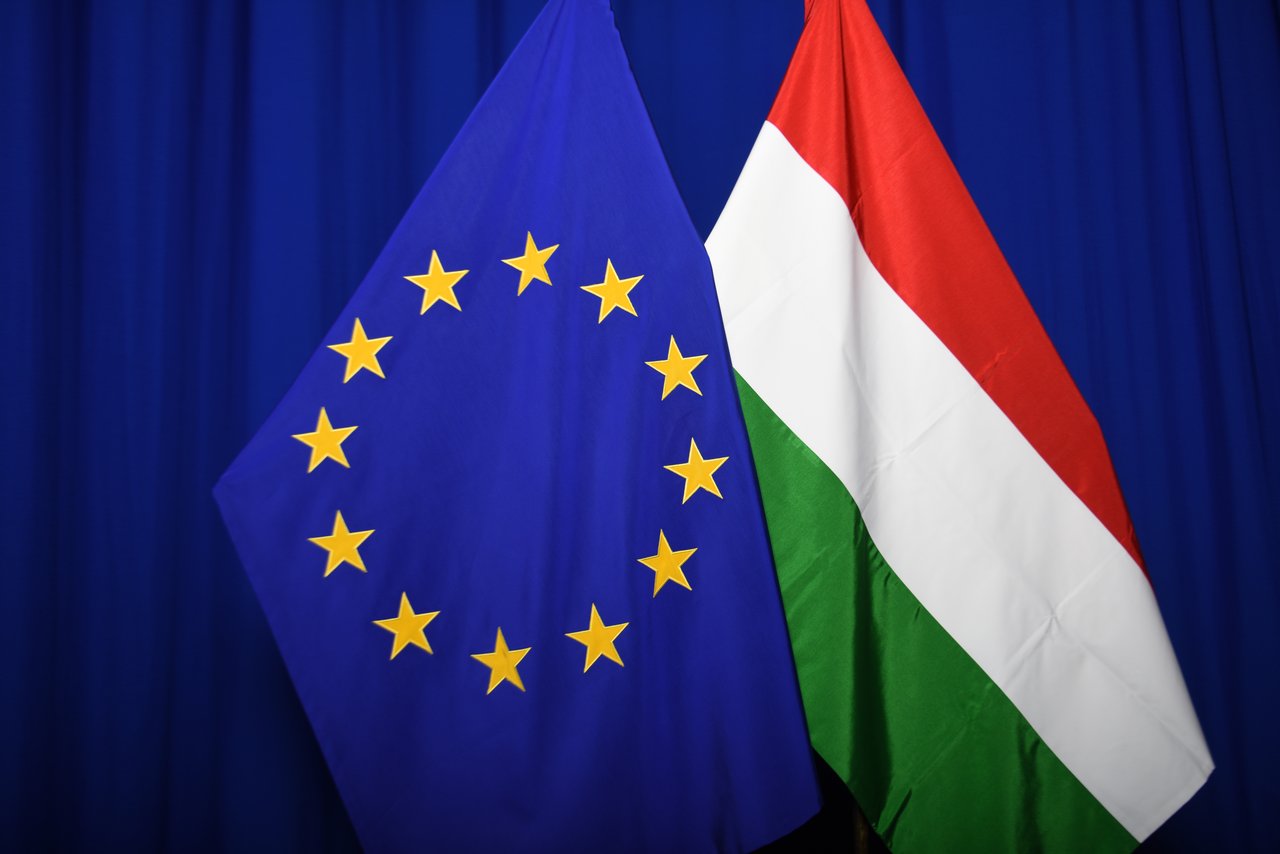Feature
Bulgaria to join the euro - while Hungary watches from the sidelines
Bulgaria is due to adopt the euro on 1 January 2026. There has been much political debate in the country in the run-up to joining the eurozone, and many residents remain sceptical.
In contrast, the vast majority of Hungarians support the euro, yet the government is not taking any steps to achieve this.
"Today's report is a historic moment for Bulgaria, the euro area and the European Union," said EU economy commissioner Valdis Dombrovskis back in June.
He was referring to the green light given by the European Commission and the European Central Bank for Bulgaria to become the 21st member of the eurozone on 1 January 2026.
Dombrovskis emphasised that the euro is more than just a currency: it is a symbol of European unity. Bulgaria will become a member of the zone, following Croatia, which adopted the euro in 2023. And recently, Romania has also announced plans to meet the necessary economic conditions for eurozone entry by 2029.
Hungary, on the other hand, does not seem open to adopting the euro, despite a recent Eurobarometer survey showing a remarkably high proportion of Hungarians, 75 percent, support the euro.
This is far higher than the average for non-eurozone countries (55 percent) and well ahead of Bulgaria’s 45 percent support.

Inflation fears or geopolitical anchor?
Over the years, surveys have consistently shown that around 55-60 percent of Bulgarians oppose the euro, or at least do not want it to be introduced soon.
This is mainly due to inflation concerns, but pro-Russian sentiment among parts of the Bulgarian population also plays a role.
For 35-40 percent of the population, mainly in Sofia and other large cities, eurozone membership is not seen primarily as an economic milestone for the poorest EU member state, but rather as a geopolitical anchor that secures Bulgaria's place at the heart of the EU, as opposed to the continuing fears of Russian influence.
Bulgarians are most concerned about rising prices. "This is the main fear associated with the euro," says Dimitar Ganev, political analyst and director of the Bulgarian polling company Trend.
According to experts, joining the euro area will not significantly change the fundamentals of the Bulgarian economy, except for a reduction in transaction costs for the export-driven economy
According to him, the population's scepticism about the eurozone began after the Greek financial crisis in 2009, when the euro started to be viewed negatively in Bulgaria.
Opinion poll data from 2007 and subsequent years show Bulgarian support for the euro at over 60 percent, virtually the same as the EU average.
Back then, the euro was widely seen as a natural part of EU membership.
“Then came the Greek crisis and the endless talk of eurozone debt,” explains Ganev.
Parvan Simeonov, an analyst at the Myara polling agency, offers another reason why Bulgarians are reluctant to give up their current currency, the lev: "We live in an ageing society, which by nature is sceptical of change."
In addition, "Bulgaria lies at the crossroads of cultures, with a long tradition of balancing between East and West."
Rationally, he says, Bulgarians tend to lean toward Germany, "but emotionally they are drawn to Russia. Trust in the EU remains high, and confidence in Germany is particularly strong."
Five years in eurozone’s waiting room
According to experts, joining the euro area will not significantly change the fundamentals of the Bulgarian economy, except for a reduction in transaction costs for the export-driven economy.
According to the Bulgarian Statistical Office, nearly 70 percent of Bulgaria's exports go to the EU; however, the changeover will not affect the EU export volumes. The Bulgarian lev has been pegged to the euro at a fixed exchange rate of 1.9558 since 2001.
So in practice, the Bulgarians gave up the most important powers of an independent monetary policy decades ago, without having an equal say in its conduct. This is about to change, as the Governor of the Bulgarian central bank will also gain a seat on the European Central Bank's Governing Council.
Five years ago, Bulgaria entered the eurozone’s 'waiting room', the Exchange Rate Mechanism II (ERM II), where, according to the main rule, countries must spend at least two years fulfilling all the requirements for adopting the euro, from macroeconomic stability to the interest rate and low inflation.
Despite the five year opportunity, authorities in Sofia failed to use the opportunity to launch a major, large-scale public information campaign about the benefits of the common currency — something that could have helped convince sceptical citizens.
Pro-Russia third party
This created political space for Vazrazhdane (Rebirth), the third political force in the Bulgarian parliament and largest pro-Russian populist party, to stir up the population against the common European currency through fake news and rallies.
In February 2025, party representatives took part in a protest outside the EU’s representation in Sofia that culminated in a building being set on fire.
Bulgaria's president, Rumen Radev, a former soldier who has been in office since 2017 and is widely believed to be working on the foundations of a future party, tried to capitalise on the discontent by calling a referendum on postponing the euro’s introduction. Parliament eventually rejected the initiative, but tensions rose sharply.
And earlier in June, another demonstration organised by Vazrazhdane paralysed traffic in downtown Sofia.
Party representatives, who have recently signed a cooperation agreement with Russia’s ruling United Russia party, attempted to occupy the parliamentary podium to block the session.
Clashes also broke out between Vazrazhdane MPs and members of the liberal, pro-EU Democratic Bulgaria Alliance.
"First, they take our money, then they take Bulgaria itself, but they underestimate the Bulgarian people. We have woken up and we want our lev back," said Kostadin Kostadinov, leader of Vazrazhdane.
"Protesting is a democratic right," responded former prime minister Boyko Borissov, leader of the ruling GERB party, who called Bulgaria's current situation in Brussels "humiliating."
Borissov pointed out that when EU Council meetings end in Brussels, the president asks non-eurozone member countries to leave.
"That's where the real decisions are made, and when Vazrazhdane protests, it effectively excludes Bulgaria from the negotiating room. But I want to get the country in there," Borissov said.

Why doesn't Hungary have the euro?
Unlike Bulgaria, there is no real social divide in Hungary over the euro adoption. Since Hungary joined the EU in 2004, public support for adopting the euro has steadily increased, according to Eurobarometer surveys.
The problem, however, is that Hungary has never fulfilled the economic criteria required for joining the eurozone.
Among other things, these include keeping the budget deficit below three percent of GDP, maintaining public debt under 60 percent, ensuring relatively low inflation, and finally, a country wishing to introduce the euro must peg its currency to the euro exchange rate for at least two years without disruption.
While the EU expects all member states to meet these criteria to some extent, fixing the exchange rate remains a sovereign decision of each country.
This month, the new chief of Hungary’s largest lender (OTP Bank Nyrt) called for the adoption of the euro.
However, the Fidesz-KDNP government led by Viktor Orbán, in power since 2010, has repeatedly made it clear that it has no intention of switching to the euro.
Before 2010, although leftwing governments had differing views on euro adoption, it was clear that the country was still far from meeting the necessary criteria.
As early as 2004, the year of EU accession, the target date for introducing the euro was pushed back, from the originally planned 2008, to 2009.
Under the government of Ferenc Gyurcsány, the key economic indicators deteriorated further away from the required levels, and the 2008 global financial crisis rendered nearly all prior estimates obsolete.
Ironically, Hungary came closest to meeting the eurozone requirements during the crisis-management period, under PM Gordon Bajnai, as the terms of the IMF loan taken to stabilise the economy imposed euro-like fiscal discipline.
Even then, the indicators fell short of the levels required for eurozone accession, but the issue of joining the common currency was firmly on the agenda.
Although the Orbán government, benefiting from the favourable global economic climate of the 2010s, managed to bring many indicators close to the required levels for the euro changeover, at that time, there was still no political will to introduce the euro.
However, the spending spree that began during the Covid-19 pandemic completely shut the door on any potential eurozone aspirations.
The most critical issue is the budget deficit, which the government has failed to reduce to the required three percent level for some time, partly as a result of lower-than-expected growth. Public debt is another issue: the country remains well above the 60 percent threshold.
In Hungary, unlike in Bulgaria, the lack of progress toward the euro is not about public support, but political will.
The government considers maintaining the forint as a matter of national sovereignty: joining the eurozone would reduce the Hungarian National Bank's room for manoeuvre, eurozone membership would require more accurate and transparent budget, and it would no longer be possible to manipulate the forint exchange rate.
This article was produced as part of the PULSE European journalism collaboration. Contributors: Krasen Nikolov (Mediapool, Bulgaria), Lola García-Ajofrín (El Confidencial, Spain) and Kata Moravecz (EUrologus, Vienna).
This year, we turn 25 and are looking for 2,500 new supporting members to take their stake in EU democracy. A functioning EU relies on a well-informed public – you.
Author Bio
Moravecz Kata is a journalist for the Hungarian media outlet HVG.
Related articles
Tags
Author Bio
Moravecz Kata is a journalist for the Hungarian media outlet HVG.